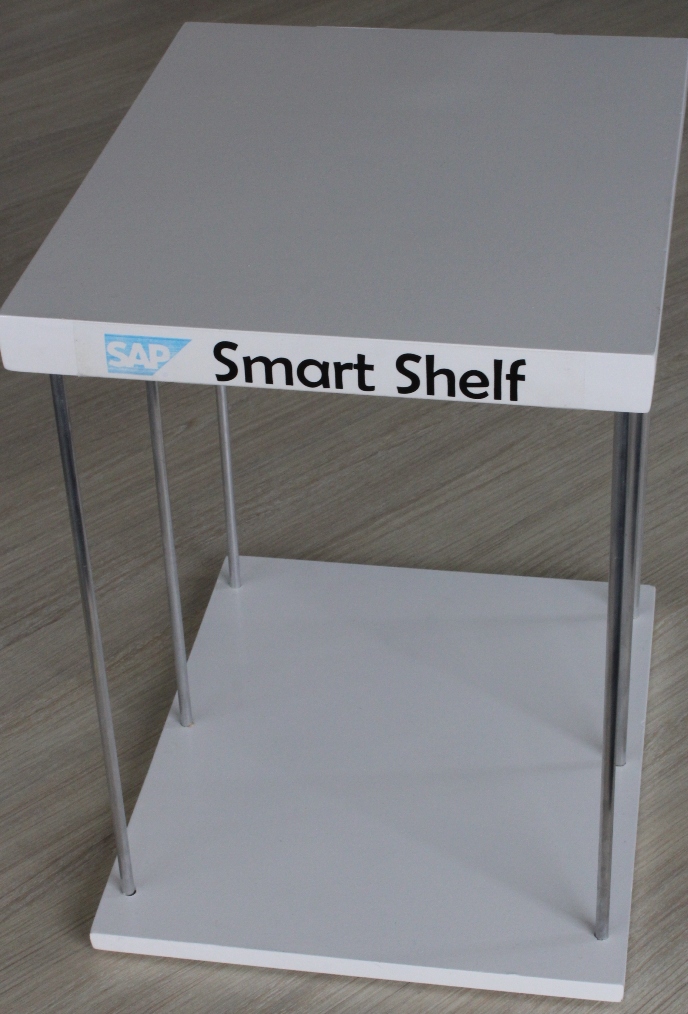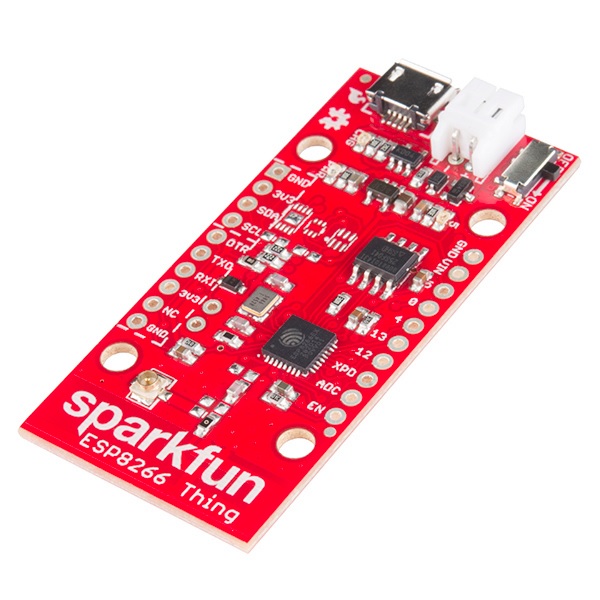-
 Part 1 uses a Sparkfun ESP8266 Thing and the C SDK.
Part 1 uses a Sparkfun ESP8266 Thing and the C SDK. - Part 2 uses a NodeMCU and Arduino IDE.
ESP8266 Dev Boards
I have realised, after spending some time building small projects using the ESP-01, ESP-03 and ESP-12 modules running off battery power, that it can be quite time consuming and tedious to build the necessary power supply circuit and wire up serial connectors each time. Also, where space is not critical (unlike in my train project), it becomes quite compelling to consider dev boards that integrate an ESP8266, together with other features, in an-easy to use (bread-boardable) form factor.
This is even more the case if you look at the falling prices of, for example, the NodeMCU board on AliExpress, You are not likely to be able to build your own equivalent at a lower cost, even discounting the time it would take.
In my type of interactive projects (where the ESP8266 cannot be put into deep sleep for extended periods), operating off battery power realistically means using LiPo/LiIon. As a result, I found myself having to disconnect the battery, attach it to a LiPo charger and then reconnect for every charge cycle.
This is when I saw that the Sparkfun ESP8266 Thing “includes a LiPo charger, power supply, and all of the other supporting circuitry”. Very convenient for what I had in mind…
But before I get to that, I want to be clear that the Sparkfun ESP8266 Thing is actually not my favourite module for the following reasons:
- It is relatively expensive (more than 5 times the price of one of those NodeMCU boards listed above, including shipping)
- Programming is not done neatly via the USB port like in the NodeMCU, so requires an additional 3.3V FTDI USB converter (or equivalent).
- Unfortunately, the serial programming lines interfere with debugging via the serial port after programming, which requires that you install terminal software (e.g. RealTerm) that can disable toggling the DTR line, as described in the Sparkfun Hookup Guide. I have not yet tried the Adafruit Huzzah, but it does not appear to have this problem, although requires you to fiddle about with buttons to get into programming mode. In contrast, the NodeMCU board simply handles (transparently in the background) toggling GPIO0 low for a programming cycle.
It is worth noting that Sparkfun’s newer ESP8266 Thing – Dev Board fixes these issues (other than the price) – but then does not include a LiPo charger!
It would be interesting to find an inexpensive LiPo charger/management board that one could pair with a NodeMCU, if anyone knows of such a thing?
Smart Shelf Concept

